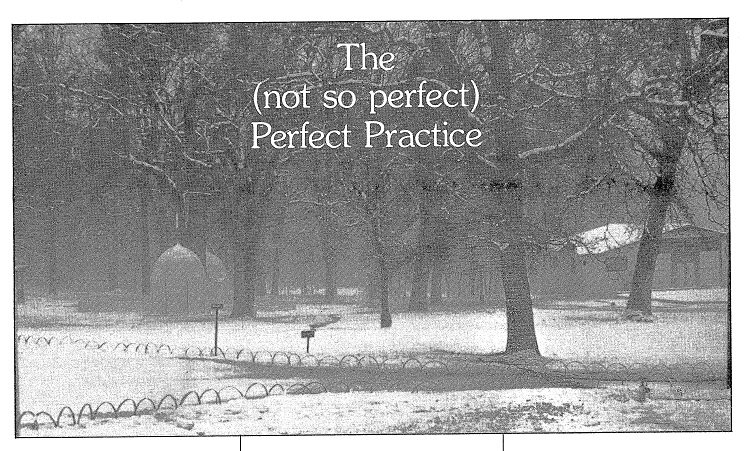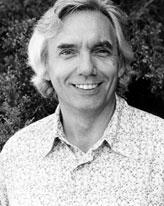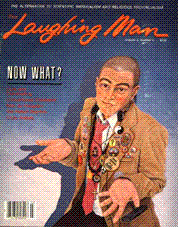

***
Originally published in ‘The Laughing Man’ magazine, 1982

![]() arrived at The Mountain of Attention Sanctuary in mid-December 1981. After a lifetime of lukewarm experiments with spiritual life, I had finally felt moved to make the most profound commitment of which I was capable. I had no difficulty whatsoever with recognizing the fullness and significance of the Teaching of Master Da Free John, and a series of psychic experiences had convinced me on the emotional level of the authenticity of his Adeptship.
arrived at The Mountain of Attention Sanctuary in mid-December 1981. After a lifetime of lukewarm experiments with spiritual life, I had finally felt moved to make the most profound commitment of which I was capable. I had no difficulty whatsoever with recognizing the fullness and significance of the Teaching of Master Da Free John, and a series of psychic experiences had convinced me on the emotional level of the authenticity of his Adeptship.
I arrived with no mental reservations, merely with the burning desire for Liberation—or so I thought. However, in the face of the bodily confrontation with the Spiritual Master and his community of devotees, it soon became apparent to me that I was as hesitant about losing my precious self as the next person.
One of the first messages that I received from Master Da recommended that I should dump my “garbage” as quickly as possible. Yet, the complete surrender that I saw was called for seemed impossible: All my life I had worked on self-possessed control; it had become my essential mode of functioning.
So, I was unable to follow Master Da’s wise recommendation. I planned, however, on surrendering piecemeal fashion. I had a reasonably clear idea of the kind of “garbage” I would have to eliminate to come to the point of genuine surrender. My strategy of gradualness was bolstered up by a quite unreasonable feeling of ease and cheerfulness that had been my almost daily disposition for about a month prior to my coming to northern California. I connected it with a spiritual experience of extraordinary blissfulness that overwhelmed me one afternoon and lasted into the night and even gave me the momentary illusion of finally having broken through into a thoroughly spiritual disposition. Dis-ease or discomfort appears to be crucial to spiritual practice insofar as it drives home the truth of the fundamental frustratedness of unenlightened existence which, in turn, motivates one to make a real effort of self-transcendence.
I overheard conversations among devotees in which the term “heat of practice” cropped up repeatedly. Some of the long faces of devotees who, I was told, were “going through it” conveyed to me a sense of what this might entail. I began to consider the possibility that my feeling of sheer ease every day could be counterproductive. In a moment of insight, when my rational mind was silenced sufficiently not to raise any objections, I prayed for a taste of that “heat.”
On waking the next morning, I felt peculiarly “on edge,” dry and troubled, almost depressed in comparison with the preceding weeks and months of ease and relative “happiness.” It took me a few hours to realize that I was experiencing the “heat” or tapas I had heard so much about. It manifested in me as a kind of weariness with myself and with conventional life, a nagging urge to move beyond my habitual self-possession. As I was emotionally quite unprepared for this gift. I merely resisted the effects on my body-mind, thereby increasing the suffering; after a day or two, my old disposition of cheerfulness reasserted itself. I quickly forgot about the whole incident. A couple of weeks later, when the “demand” for spiritual practice made itself felt again, the accompanying heat was a little more severe than on the first occasion. Obviously, I had set in motion a mechanism over which I had no conscious control. This was a little disquieting, but it seemed appropriate enough, even though I again reacted to the unpleasantness of the experience. As my involvement with the community of practitioners and my interaction with Master Da Free John (which he so graciously engaged) intensified, the frequency and intensity of the “heat” also increased.
The crunch came while I was helping to prepare The Liberator (Eleutherios) for publication. One morning, quite out of the blue, an essay entitled “What is Consciousness?” was delivered to the editorial office. Master Da had just completed it and requested that we publish it in book form together with a suitable introduction. I remember commenting at once that this would turn into a “lila,” a Teaching occasion. My premonition was to prove correct.
Work on the introduction to the essay (to which over the span of a week or so several other essays were added to form a whole book) turned into a demanding occasion of spiritual practice. I reacted to the book so strongly that I found it virtually incomprehensible. Despite repeated readings. even in a proper devotional-meditative setting at one of the holy sites, I failed to take in any of its contents. More than that, I continued to feel completely out of relationship to it.
It literally felt as if I was wading through some viscous liquid. An illiterate person could hardly have found it more difficult to understand the book. As the days passed, The Liberator (Eleutherios) posed an increasing challenge to my resistive mind, which became more and more fatigued and discouraged with its own failure.
Upon the third or fourth reading of the book, one phrase, at last, jumped at me from the pages: “Be Consciousness.” I could relate to that at least. The rest, however, still remained as enigmatic to me as hieroglyphics. I began to relate “Be Consciousness” to the process of Radical Understanding as described in The Knee of Listening and Master Da’s other works. But still, I could not think the whole matter through, my mind being curiously blocked and dense.
Then one day—it seemed like months of intense struggle—Master Da considered work on the book completed. It was as if a veil dropped from in front of my eyes, and a heavy burden lifted from my shoulders. The feeling was shared by all who had been involved with the preparation of the book for publication. It is difficult to convey this to someone who has not gone through the particular sadhana of “editorial yoga.”
For the first time, I could read the book and actually comprehend its message, which in itself is simple and clear. I started to consider how it might inspire my own practice. The phrase “Be Consciousness” had a magical appeal for me, and 1 took up the tentative practice of what I thought was the Perfect Practice, as described in The Liberator (Eleutherios). Even so, I did not take this too seriously at the time.
Nevertheless, Master Da learned about my interest in the Perfect Practice and communicated to me that I may indeed be in such a fortunate psychic disposition as to devote myself to this supreme form of practicing the Way. I felt considerably encouraged by this, but also somewhat alarmed since I did not feel that I had as yet the degree of equanimity and free attention that is the necessary base for this practice. So, I began to cautiously experiment with the Perfect Practice, while at the same time continuing to apply aspects of the Way of Faith and the Way of Insight in my daily life.
It was just when I thought I was beginning to get the “knack” of the Perfect Practice that Master Da spontaneously invited me into his personal company for the first time in seven months. The external occasion was a magic show that had been put together by devotees for his pleasure. Throughout the evening I practiced fiercely, though with unaccustomed ease. It was obvious to me that, because my attention was truly on the Adept rather than on the evening’s entertainment, I was undergoing some form of initiation. This was later confirmed to me by one of the advanced practitioners. 1 felt elated at this, and the possibility of adopting the Perfect Practice for my particular approach seemed more realistic than ever before. Master Da later remarked that I appeared to be practicing seriously, and as a consequence even graciously invited me to several more informal gatherings in his company in short succession, each time liberally engaging me in a profound Teaching consideration.
It was on the second invitation that he considered with me my “emotional-sexual history”—something he had not done personally with devotees in many years. With a few pointed questions, to which I felt moved to respond openly and unthinkingly, he exposed the “grammar” of my personality, the ridiculous structure that animates my whole life, my particular version of the myth of Narcissus.
I had not been unaware of the principal neurotic strategies that had allowed me to live my life so “well-regulated.” However. I have never had occasion to examine Narcissus with such inevitable directness. On the contrary, my recognition of certain patterns in my behavior over the years occurred almost against my will, and there was ample room for developing blind spots in regard to just those areas where I should have paid great attention in the interest of my spiritual life.
Master Da’s summary reading of my character was an eye-opener for me.
By reducing the complexities of my strategies of “avoiding relationship,” and bypassing God-Communion, to a manageable formula, he presented me with a sound and economic basis for observing, understanding, and transcending the binding configurations of my personality.
In the course of his acute exposure of the myth of Narcissus in my life, he naturally also entered into a consideration of my penchant for the Perfect Practice, and it is this aspect of the Teaching circumstance which will be found useful by other devotees who may have a similar personality structure and perhaps entertain identical ambitions.
Since Master Da’s rigorous analysis of my character, I have witnessed the beginnings of a profound change in my life. By confronting me so ruthlessly (if lovingly and humorously) with myself, he has cracked my self-protective armor and opened me up to the benign influence of the spiritual process that is the essence of the relationship between God-Realized Adept and devotee. I am profoundly grateful to Master Da for this.